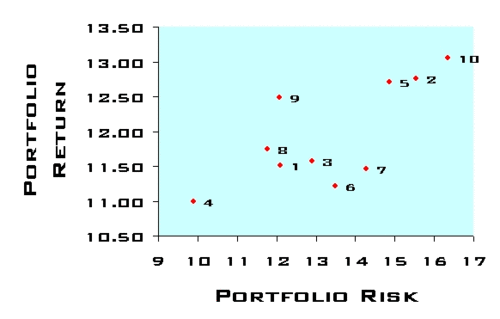Being Present
I've recently come back to yoga after a five year hiatus. I didn't realize how much my body missed it. I stopped doing yoga because I couldn't handle the mental aspect of the practice. I struggle with being present mentally for 90 minutes. In fact, I find it impossible. Even as I've come back to the practice, I look at the clock constantly, waiting for the class to end. I am working on this struggle because yoga makes me feel so much better and I am hoping I can come to terms with the mental aspect of the practice if I work at it.
I tell you this because being present is a struggle in everything I do and yet it is the most important thing you can do. Today is the 23rd anniversary of the day the Gotham Gal and I were married. And it is father's day. A pretty special day in our family.
I got up early and took a long bike ride this morning and reflected on 23 years of marriage and almost 20 years of fatherhood. I thought about a time fifteen years ago when our kids were young and I was starting Flatiron Partners, the first venture firm I helped to start. I was working super hard and still had not made any money in the venture capital business after a decade in it. We had moved out of the city and were living in the suburbs. I was catching the early train and struggling to get home before the kids went to bed. The Gotham Gal had stopped working, was missing the city and feeling alone and overwhelmed.
Around that time, I attended an offsite of a larger private equity firm and there was a organizational psychologist who gave a talk on work life balance. He said something I'll never forget. He said that you have about ten to twelve years to connect with your kids and then they turn into teenagers, tune you out, then turn into adults and build their own lives. I thought about my kids who were five, three, and a baby and realized that time was short and I needed to be present in their lives in every way that I could. And I committed right there and then to do that. And I've done a pretty decent job of it. Not perfect by any means. But much better than my yoga practice.
Marriage is harder than parenthood. The Gotham Gal and I have been together for almost thirty years. I've heard every single one of her stories a dozen times. And she has heard mine too. Familiarity and comfort with each other is a double edged sword. We can finish each other's sentences but that also means the sentences sometimes aren't even uttered.
Being present in a relationship, whether it is with your kids, your spouse, or anyone important in your life is hard work, particularly for overstimulated type A personalities like me and many of the people who read this blog.
Everyone is still sleeping in my house, but after I hit the publish button, I will be off the grid today and being present with my family on this special day.






